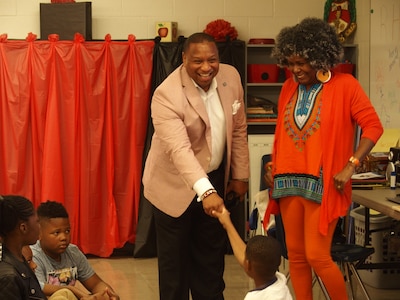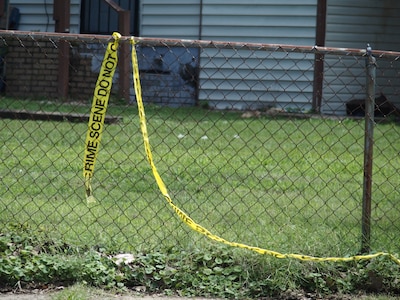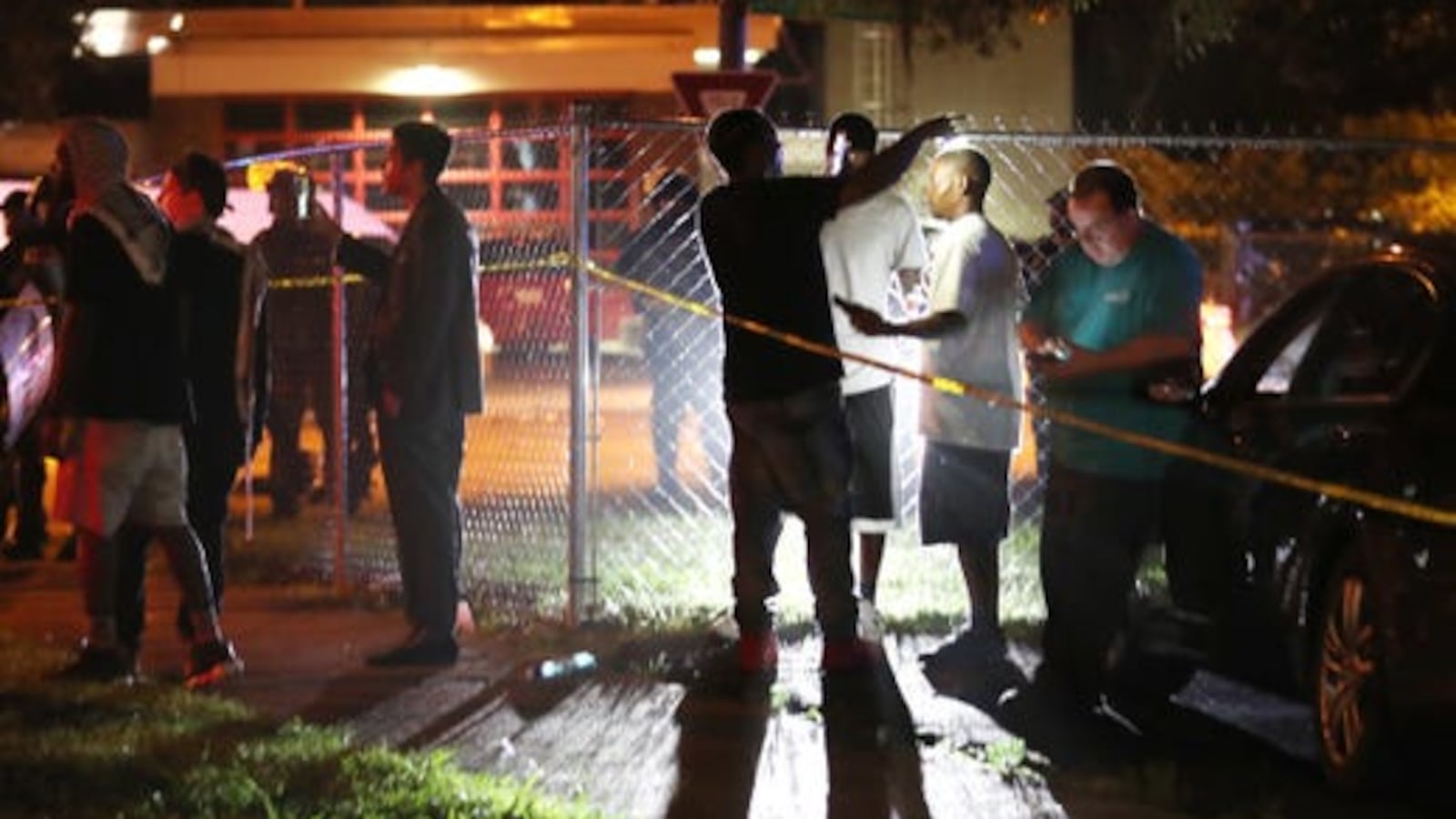Superintendent Joris Ray has sent grief counselors to schools many times following violence in a school community. But this visit was different.
The assistant principal of Hawkins Mill Elementary told Ray she and the rest of the school staff were trying to keep life normal for students because the school is a mile away from where federal officers killed 20-year-old Brandon Webber during an arrest earlier this week.
Ray knows it’s just a matter of time before subtle signs of anxiety show up as a result of things that happen outside the school’s control.
“This happens in our communities all the time,” he said of the majority-black city. “This situation is one that I really wanted to come see how our children are doing in the community, how they’re responding.”

Federal officers allege Webber rammed his vehicle into theirs multiple times and then exited the car with a weapon before the officers shot and killed him. The subsequent protests, which included some participants throwing rocks at police officers, drew national attention. City leaders said six officers went to the hospital with injuries.
As stories emerged from those who knew Webber as a talented, hard-working student leader, some have wondered what else could have been done while he was in school to prevent his death.
School board member Stephanie Love, who had known Webber since he was an honor roll student in elementary school, challenged the idea that “education is the great equalizer.”
“The education system gave him everything that he needed. His mother exposed him to everything that he needed to be successful,” she said. “When he was in elementary school, every award ceremony they were calling ‘Brandon Webber, Brandon Webber, Brandon Webber.’”
He went on to Snowden School, a popular Memphis school with a competitive magnet program, and graduated from Central High School in 2017 before enrolling full-time at the University of Memphis.
In a 2016 interview with Chalkbeat, Webber credited one of his high school teachers, Mary McIntosh, with pushing him academically and encouraging him to think more deeply about his role in his community. She remembers him as a “fine writer” and said the two of them talked often about the choices he faced to plan his future.
“Brandon was candid with me about the realities of his world… It speaks to how comfortable he was being vulnerable,” said McIntosh, adding that this week she is reaching out to students and offering them safe places to grieve. But in the coming weeks, she wants there to be greater conversation.
“For me, it’s: How can our entire community, including schools, be there for all children?”
Shawnee McFarland, a Memphis teacher, said that as a black woman teaching in a mostly black district, and as the former wife of a police officer, this week’s events have left her torn as she “mourns the loss of any child.”
“I got up and came to summer school and today taught a quick 15-minute lesson to those students about respectful and appropriate police interactions,” McFarland said on Facebook.
“I just feel like I need to do something, and if my classroom is the only platform that I have, I’m going to use it to reach them and build the bridge between our community and the police as much as possible,” she continued.

Most Memphis students come from low-income families. Research has shown poverty adversely affects student learning, and black children are three times as likely to grow up in poverty as white children. A number of studies have also found that violent and traumatic events outside of school can cripple student learning, especially among students already struggling.
Since the school board appointed Ray to lead Tennessee’s largest district in December, he has emphasized the district’s need to respond to childhood trauma in new ways. The district has hosted numerous trainings for teachers and staff, and next year’s budget includes additional staff to help students cope with stress. Ray has presented sobering statistics on black boys in the district, hoping to shape initiatives that will lead them to successful lives once they leave the school system.
Still, Ray said that is not enough.
“Shelby County Schools, our arms’ reach can [only] go so far,” he said after visiting Hawkins Mill on Friday. “We need everyone to step up from the county government to the city government to the sheriff’s department to the police department. I’m working with universities. I’m meeting with everyone.”
At least one county commissioner believes investing in preschool classrooms would help avoid killings like Webber’s. Shelby County partly funds Memphis schools.
“If commissioners do not invest on the front end, this is what the results are,” Mark Billingsley said in response to questions about the shooting during a local television talk show. “We’re in a city of poverty. And quite frankly, I believe education is our way out.”
But Love said there has to be more. “We can educate our children to the fullest, but when they leave our buildings and go back to their communities where reality actually begins, if the systems are not in place to help our families improve, it’s not going to work.”
Reporter Caroline Bauman contributed to this report.

